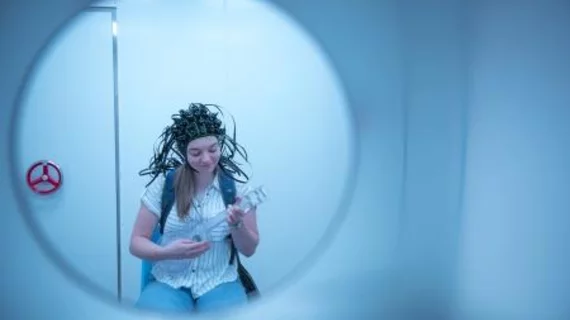New commercial partnership Cerca Magnetics develops ‘world’s most advanced’ functional brain scanner
The University of Nottingham and manufacturing firm Magnetic Shields Limited recently announced a partnership to launch what both organizations are calling the world’s most advanced functional brain scanner, according to a Dec. 8 announcement.
Together, the U.K.-based groups created a new company called Cerca Magnetics Limited, which will market the wearable scanner. The product utilizes magnetoencephalography technology and can generate images depicting moment-to-moment changes in brain activity.
According to its creators, it is the only wearable MEG system available and can fit any head size including adults and children. And it may have important implications for both groups.
“Five years ago, we started with a few equations on the back of an envelope, and a few lines of computer code to simulate a system,” Elena Boto, PhD, chief technology officer of Cerca and a University of Nottingham scientist, said in a statement. “There are many advantages to our system but for me, the biggest is the ability to scan babies and children. Neurological disorders, like epilepsy, often strike in young children and this new system will provide new information to medical professionals which they can use in treatment planning."
The researchers noted that their system is cost-friendly and can produce images with a higher sensitivity and spatial specificity.
“Understanding the human brain and the many severe and debilitating conditions that affect it is one of the biggest challenges for 21st century science,” Matt Brookes, PhD, who leads MEG research at the University of Nottingham, said on Tuesday.
Read more about the brain imaging device here.

